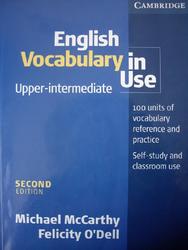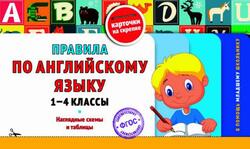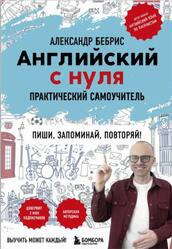English vocabulary in USE, Upper-Intermediate, Michael McCarthy, Felicity O’Dell, 2017.
This book has been written to help you learn new vocabulary. You already know a large number of English words, but to express yourself more fully and in a more sophisticated way at the upper-intermediate level, you will ideally need about 4,000 words, so increasing your vocabulary is very important for your general progress in English. In this book, there are over 2,500 new words and phrases for you to learn. You will find them on the left-hand page of each unit. Every new word or phrase is used in a sentence, or in a conversation, or is in a table, or has a picture with it, or has some explanation of what it means. On the right-hand page there are exercises and other activities to help you practise using the words and to help you to remember them. The book has been written so that you can use it yourself, without a teacher. You can do the units in any order you like, but we believe it is a good idea if you do Units 1 to 4 first, as they will help you to work with the rest of the book in the best possible way.
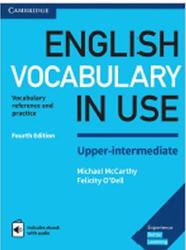
Примеры.
Answer the questions.
1 If a fee or charge is mandatory, do you have to pay it or can you choose? You have to pay it.
2 If an event is inevitable, how certain is it that it will happen? 20%, 50% or 100%?
3 If a car is exempt from tax, how much tax do you have to pay for it?
4 If an exam is optional, are you obliged to take it?
5 If you are liable for something, is it your or someone else’s responsibility?
Rewrite the words in bold using expressions from the opposite page.
1 Most people consider that a mobile phone is not a luxury but something you absolutely must have. аn absolute necessity / something you can't do without
2 I have been given a chance to work with a team of zoologists in East Africa.
3 Is there any chance that you will be free to join us at 4 pm tomorrow?
4 It’s not at all sure whether there will be any change in the situation in the near future.
5 It’s not just a possibility that food prices will go up, it’s absolutely certain to happen.
6 She will probably arrive tomorrow.
Contents.
Thanks.
Enhanced ebook.
Introduction.
Effective vocabulary learning.
1 Learning vocabulary.
2 Organising a vocabulary notebook.
3 Using your dictionary.
4 Guessing and explaining meaning.
Topics.
5 Countries, nationalities and languages.
6 The weather.
7 Describing people: appearance.
8 Describing people: personality.
9 Idioms describing people.
10 Relationships.
11 At home.
12 Everyday minor problems.
13 Global problems.
14 Education.
15 Higher education.
16 Work.
17 Business.
18 Sport.
19 Art and literature.
20 The atre and cinema.
21 Music.
22 Food.
23 Physical geography.
24 Environmental problems.
25 Towns.
26 The natural world.
27 Clothes.
28 Health and medicine.
29 Medicine and technology.
30 Health and lifestyle.
31 Travel.
32 Holidays.
33 Science and technology.
34 Computers.
35 Communications and the Internet.
36 Social media.
37 The press and the media.
38 Politics and public institutions.
39 Crime.
40 Money.
41 Describing objects.
Feelings and actions.
42 Belief and opinion.
43 Pleasant and unpleasant feelings.
44 Like, dislike and desire.
45 Speaking.
46 The six senses.
47 What your body does.
48 Praising and criticising.
49 Emotions and moods.
50 Commenting on problematic situations.
Basic concepts.
51 Number, quantity, degree and intensity.
52 Numbers and shapes.
53 Time.
54 Distances and dimensions.
55 Obligation, need, possibility and probability.
56 Sound and light.
57 Possession and giving.
58 Movement and speed.
59 Texture, brightness, weight and density.
60 Success, failure and difficulty.
Connecting and linking words.
61 Time: connecting words and expressions.
62 Condition.
63 Cause, reason, purpose and result.
64 Concession and contrast.
65 Addition.
66 Referring words.
67 Discourse markers in spoken English.
68 Linking words in writing.
69 Talking and communicating.
Word formation.
70 Suffixes.
71 Prefixes.
72 Roots.
73 Abstract nouns.
74 Compound adjectives.
75 Compound nouns 1: noun + noun.
76 Compound nouns 2: verb + preposition.
77 Binomials.
78 Abbreviations and acronyms.
79 Multi-word expressions.
Words and pronunciation.
80 Words commonly mispronounced.
81 Onomatopoeic words.
82 Homophones and homographs.
Counting people and things.
83 Uncountable nouns.
84 Words that only occur in the plural.
85 Countable and uncountable nouns with different meanings.
86 Making uncountable nouns countable.
87 Collective nouns.
88 Containers and contents.
Phrasal verbs and verb-based expressions.
89 Expressions with do and make.
90 Expressions with bring and take.
91 Expressions with get.
92 Expressions with set and put.
93 Expressions with come and go.
94 Expressions with other common verbs.
Varieties and styles.
95 Formal and informal words 1.
96 Formal and informal words 2.
97 Similes.
98 Proverbs.
99 The language of signs and notices.
100 Headline English.
101 US English.
Answer key.
Phonemic symbols.
Index.
Acknowledgements.
Бесплатно скачать электронную книгу в удобном формате, смотреть и читать:
Скачать книгу English vocabulary in USE, Upper-Intermediate, Michael McCarthy, Felicity O’Dell, 2017 - fileskachat.com, быстрое и бесплатное скачивание.
Скачать pdf
Ниже можно купить эту книгу, если она есть в продаже, и похожие книги по лучшей цене со скидкой с доставкой по всей России.Купить книги
Скачать - pdf - Яндекс.Диск.
Дата публикации:
Теги: учебник по английскому языку :: английский язык :: Michael McCarthy :: Felicity O’Dell
Смотрите также учебники, книги и учебные материалы:
Следующие учебники и книги:
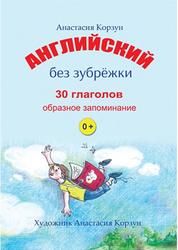 Английский без зубрёжки, 30 глаголов, Образное запоминание, Корзун А., 2017 — Эта книга поможет превратить рутинное изучение английского языка в путешествие по веселым, рисованным картинкам. Эти необычные иллюстрации разработаны по методу … Книги по английскому языку
Английский без зубрёжки, 30 глаголов, Образное запоминание, Корзун А., 2017 — Эта книга поможет превратить рутинное изучение английского языка в путешествие по веселым, рисованным картинкам. Эти необычные иллюстрации разработаны по методу … Книги по английскому языку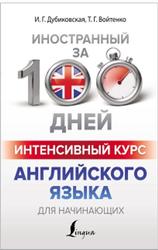 Интенсивный курс английского языка для начинающих, Дубиковская И.Г., Войтенко Т.Г., 2018 — Данное учебное пособие содержит лексический и грамматический материал для изучения английского языка с нулевого уровня до уровня pre-intermediate (А2 В1). … Книги по английскому языку
Интенсивный курс английского языка для начинающих, Дубиковская И.Г., Войтенко Т.Г., 2018 — Данное учебное пособие содержит лексический и грамматический материал для изучения английского языка с нулевого уровня до уровня pre-intermediate (А2 В1). … Книги по английскому языку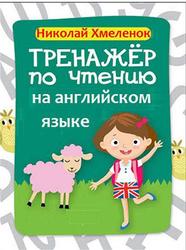 Тренажёр по чтению на английском языке, Хмеленок Н., 2018 — Если бы в русском языке буквы изучали в алфавитном порядке, то дети бы очень нескоро смогли прочитать слово МАМА. По … Книги по английскому языку
Тренажёр по чтению на английском языке, Хмеленок Н., 2018 — Если бы в русском языке буквы изучали в алфавитном порядке, то дети бы очень нескоро смогли прочитать слово МАМА. По … Книги по английскому языку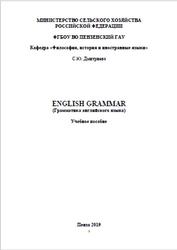 ENGLISH GRAMMAR, грамматика английского языка, Дмитриева С.Ю., 2019 — Учебное пособие подготовлено в соответствии с рабочей программой дисциплины Иностранный язык , разработанной для студентов среднего профессионального образования, обучающихся по … Книги по английскому языку
ENGLISH GRAMMAR, грамматика английского языка, Дмитриева С.Ю., 2019 — Учебное пособие подготовлено в соответствии с рабочей программой дисциплины Иностранный язык , разработанной для студентов среднего профессионального образования, обучающихся по … Книги по английскому языку
Предыдущие статьи:
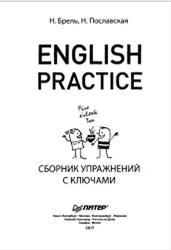 English Practice, сборник упражнений с ключами, Брель Н., Пославская Н., 2017 — Вы уже знаете немало английских слов и знакомы с английской грамматикой, возможно, даже читаете по-английски, но разговорная речь никак не … Книги по английскому языку
English Practice, сборник упражнений с ключами, Брель Н., Пославская Н., 2017 — Вы уже знаете немало английских слов и знакомы с английской грамматикой, возможно, даже читаете по-английски, но разговорная речь никак не … Книги по английскому языку Английский язык + мотивация для лентяев, Джонсон Д., 2018 — Английский язык: Годы обучения? 50 тысяч рублей в месяц за репетитора, который вас ничему не научит? Забудьте! Найден простой и … Книги по английскому языку
Английский язык + мотивация для лентяев, Джонсон Д., 2018 — Английский язык: Годы обучения? 50 тысяч рублей в месяц за репетитора, который вас ничему не научит? Забудьте! Найден простой и … Книги по английскому языку Большой самоучитель английского языка, Державина В.А., 2018 — Известный автор словарей и пособий по английскому языку В. А. Державина представляет Большой самоучитель английского языка. Это самоучитель нового поколения, … Книги по английскому языку
Большой самоучитель английского языка, Державина В.А., 2018 — Известный автор словарей и пособий по английскому языку В. А. Державина представляет Большой самоучитель английского языка. Это самоучитель нового поколения, … Книги по английскому языку Базовый английский за 1 месяц, Альтернативный подход, Даукеев Б.Т., 2019 — Данное учебное пособие предназначено для всех, кто ищет быстрый и легкий способ освоить базовый разговорный английский. Уникальность данной книги не … Книги по английскому языку
Базовый английский за 1 месяц, Альтернативный подход, Даукеев Б.Т., 2019 — Данное учебное пособие предназначено для всех, кто ищет быстрый и легкий способ освоить базовый разговорный английский. Уникальность данной книги не … Книги по английскому языку

